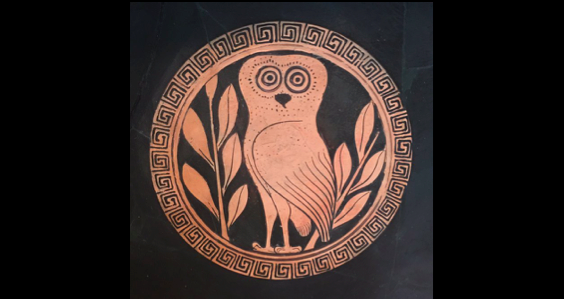I can’t even believe I am typing this but… I had my viva on Friday and I passed!
This blog post will include some reflections on my viva experience and some hints and tips on viva preparations.
I passed my viva today, so…
— Shelby🌚Regina Optia (@Judgeyxo) June 24, 2022
Dr. Shelby Judge pic.twitter.com/arK64X5SDc
Reflections on the viva experience:
I am not going to sugarcoat this for you. I was so incredibly nervous. It felt like the nerves I had before my A-Level English exams, where I felt the crushing pressure of all the work I had done and all the aspirations I had for my future were relying on this one moment. I was stepping up to the plate, and I felt sick and sweaty and nervous as hell.
Before it was a very real and immanent prospect, I had said how excited I was for the viva. We were collecting experts on my thesis topic to read it and talk about it, and the viva and corrections are all a part of getting the thesis, rather than an exam or a pass/fail sort of thing. But, when I was staring it in the face… oh my god, the NERVES.
The viva itself was a weird experience. A lot of topics came up that I expected, such as the route I took to doing this research and why I’d argued certain things, questions about my methodological and theoretical choices, and a particular focus on my Antigone chapter. But there were some topics that I wasn’t expecting at all. For example, a long discussion on Hegel when I don’t use Hegel in my thesis! But, I suppose, as Iorga says, who, in turn, was echoing Nietzsche: ‘we are all Hegel’s subjects, even those who have not heard of him’ (see: Apud 2003).
So here’s how the mechanics of the viva work.
The internal examiner, external examiner, and chair all meet around 30 minutes before you arrive, and they discuss your thesis and their opinions on it. Then you have the viva, where the chair introduces you all and then the examiners take turns asking you questions about your work. Then, once the discussion is done, they reconvene without you (or, as I have taken to calling it: they go into conclave), and make their decision. After about 10 minutes (in my experience), they let you back in and tell you how you’ve done.
That ten minutes.
I was convinced I had done badly. I felt like my answers were poor imitations of my thoughts, and that my thesis was badly researched and poorly argued, and the viva itself did not demonstrate that I was an expert in my field.
Then, when we reconvened, they told me I’d passed!
They told me it was a particularly great viva & I came across very confident and expert and they were impressed with the way I pushed back in defence of my choices!
The piece of positive feedback that meant the most to me was their comments on my writing style. They said my writing was clear and accessible, and didn’t try so hard to sound smart at the expense of making any sound points. Instead, it was smart because the points were smart, and they were easy to follow because they had been communicated so well. That’s so special to me, because that’s really what I aim for in my writing style.
Here is, perhaps, the weirdest bit. I enjoyed the conversation afterwards more than the rest of it. We talked about exciting productions of ancient plays that are going on right now, the avenues my research could take next, and the ways we could continue to connect in the future. It was really heartwarming and a great way to decompress.
I would like to do a special shout out to my examiners, Vassiliki Kolocotroni from the University of Glasgow & Katie Fleming from Queen Mary UoL! You were so brilliant and encouraging, and you’ve opened my eyes to some really interesting avenues of research. Shout out, too, to my viva chair, Andrew Radford, who was so well organised and kind and reassuring, answering all of my panicked and pernickety questions with patience. My supervisor, Helen Stoddart, has always been a really motivating figure in my research experience, and she went above and beyond with viva encouragement and note taking during the viva itself. I'm really looking forward to doing the corrections, because I think they are going to just make this the best piece of work it could be.
Just as a funny side note, I got an email the day before the viva from Andrew with some housekeeping info, and the subject line of the email said “The Shelbiad” and I spent about 4 hours freaking out that my blog was a *Problem* that the examiners had discussed and they were going to fail me because of it. Anxiety is funny like that.
I celebrated by going to this amazing Greek restaurant and I ate halloumi gyros and melitzanosalata, which is this incredible garlicky aubergine dip, served with pita bread so it’s like deconstructed garlic bread. I also had prosecco and Greek god themed cocktails: Apollo (a frozen berry martini) & Hermes (a rum and pineapple cocktail). Last time I went, we had the Aphrodite (an incredibly decadent creamy cocktail with raspberry liqueur), the Athena (a very berry boozy combo), and the Adonis (because what better name is there for an espresso martini?).
 |
| Halloumi gyros (front), melitzanosalata and pita (middle), halloumi loaded fries (middle right), another gyros (back) |
 |
| The Apollo & a prosecco |
 |
| The Aphrodite |
 |
| The Athena |
7 tips for viva prep:
Okay, so it will surprise nobody to know that I went absolutely over the top with viva prep. So I am including below a list of things that I did, of which you can pick and choose what you might find useful.
1. Find lists of viva questions & write out answers
This is very useful for just getting your thoughts and responses out, and thinking about your thesis as an entire project, as well as specific questions about your approach.
2. Practice saying your answers out loud
This is, after all, an oral exercise. We are all quite used to written exams, and talking about our thesis informally, or giving the rehearsed elevator pitch or conference papers. However, it’s an entirely different kettle of fish to answer questions like this, in this environment, so it’s worth getting used to responding to these questions out loud.
3. Print your thesis
This is something I found so helpful. I printed a copy of my thesis and had it bound, so that I could read it in its physical form.
Here’s when I read it:
There are approximately three months between your submission and your viva. I spent the first two months completely emptying my head of it, doing literally anything else. By the time you’ve submitted, you desperately need space from the thing. Then, two months later, a month before my viva, I printed my thesis and read it. Then I found the viva questions, wrote answers, and practiced saying them aloud. I read it again in the two days before my viva, just to make sure it was very very fresh in my mind (or, if I’m being really honest, so that I didn’t have to think about the impending viva). Again, I want to stress that this was complete overkill, but this is what I did.
4. Open your thesis at random pages, formulate questions and answers & say them out loud
This is a really good exercise. This best emulates the experience of the viva, where you don’t know what parts of the thesis the examiners will want to talk about. Make sure you’ve practiced talking about every chapter (including your introduction, methodology and literature review, and conclusion!)
5. Get someone else to do the above
Now, it might be that no one else other than your supervisor has read your thesis, and that was certainly the case for me. Nevertheless, find yourself a very patient assistant and have them open your thesis to random pages, scan what you’ve written, and ask you a question about it. They might even have follow-up questions about your answer, and that’s incredibly useful!
6. Assess what sources from your bibliography have been the most useful and practice speaking about them
It’s almost certain that your examiners will ask you about some of the secondary material you have used, particularly the ones you have found relevant throughout the thesis. So make sure you practice speaking about them, paying particular attention to how you have used them.
7. Or, alternatively, do none of these things and go in with a fresh mind
Either (or any) approach is great, and you know your processes best! You’ve come this far, and you know yourself and your research inside out. So you do what you want to do in preparation for the viva!
 |
| source |
 |
| source |


Comments
Post a Comment